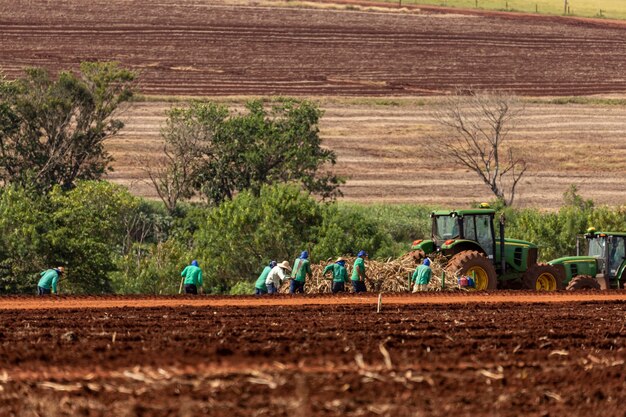Managing farm labour effectively is crucial for the success and sustainability of any agricultural operation. In South Africa, where farms vary in size and type, labour management strategies must be both flexible and efficient. This guide provides essential tips for South African farmers to optimize their farm labour management practices and create a productive and harmonious work environment.
1. Plan and Forecast Labour Needs
To manage labour effectively, it is important to plan ahead. Assess the different phases of the agricultural cycle and identify peak periods when more workers may be required, such as during planting and harvesting seasons. Forecasting labour needs helps prevent shortages or overstaffing, ensuring that the right number of workers are on hand when needed.
2. Hire and Train the Right People
Hiring skilled and motivated workers is essential for a productive workforce. When recruiting, look for individuals with relevant experience and a strong work ethic. Investing in training programs to upskill workers ensures they are knowledgeable about farm practices and safety protocols. This can improve productivity and reduce costly mistakes or accidents.
3. Offer Competitive Wages and Benefits
In order to attract and retain top talent, offering competitive wages and benefits is vital. While cost is always a concern, providing fair compensation and additional benefits such as housing, meals, or transport can boost employee satisfaction and loyalty. This can help reduce turnover and create a more stable workforce.
4. Ensure Compliance with Labour Laws
South African labour laws provide specific guidelines regarding working conditions, wages, and benefits for farm workers. Farmers must ensure compliance with these regulations to avoid legal issues and penalties. Key laws to be aware of include the Basic Conditions of Employment Act (BCEA) and sectoral determinations specific to the agricultural industry. Regularly reviewing employment contracts and maintaining clear documentation helps in staying compliant.
5. Foster a Safe and Respectful Work Environment
Creating a safe and respectful workplace not only promotes productivity but also encourages worker loyalty. Provide proper training in the safe use of machinery, chemicals, and equipment, and enforce safety protocols. Ensure that workers have access to clean water, proper sanitation facilities, and protective gear as needed. An environment that values respect and safety enhances morale and minimizes accidents.
6. Implement Efficient Communication Practices
Clear and open communication is crucial for managing farm labour effectively. Hold regular meetings to discuss work schedules, expectations, and any issues that may arise. Establish channels where workers can voice concerns or provide feedback. Open communication fosters trust and helps address potential issues before they escalate.
7. Use Technology to Streamline Labour Management
Incorporating technology can greatly improve the efficiency of labour management. Mobile apps and software solutions are available to help track worker attendance, manage payroll, and assign tasks. Technology also simplifies record-keeping and can alert you to any labour shortages or inefficiencies. For example, using digital timesheets can reduce paperwork and improve accuracy in logging work hours.
8. Provide Opportunities for Growth and Development
Motivate your workforce by offering opportunities for growth and career development. This could include providing training in specialized tasks or promoting workers to supervisory roles. Demonstrating that there is room for advancement can inspire employees to work harder and remain committed to your farm.
9. Manage Conflicts Effectively
Conflicts can arise in any workplace, and farms are no exception. Address disputes promptly and fairly to prevent them from affecting productivity or creating a hostile work environment. Implement clear grievance procedures and encourage an open-door policy where workers feel comfortable raising issues.
10. Recognize and Reward Hard Work
Showing appreciation for your workers’ efforts can go a long way in maintaining a motivated workforce. Recognize hard work and achievements through incentives, awards, or simple gestures like employee-of-the-month programs. Acknowledging contributions can boost morale and reinforce a culture of teamwork and dedication.
Managing farm labour is about balancing productivity, compliance, and worker satisfaction. By implementing these strategies, South African farmers can create a more effective, efficient, and harmonious work environment. With proper labour management, farmers can boost productivity, build a loyal workforce, and ultimately ensure the long-term success of their farming operations.
Join 'Farmers Mag' WhatsApp Channel
Get the latest Farming news and tips delivered straight to your WhatsApp
CLICK HERE TO JOIN






